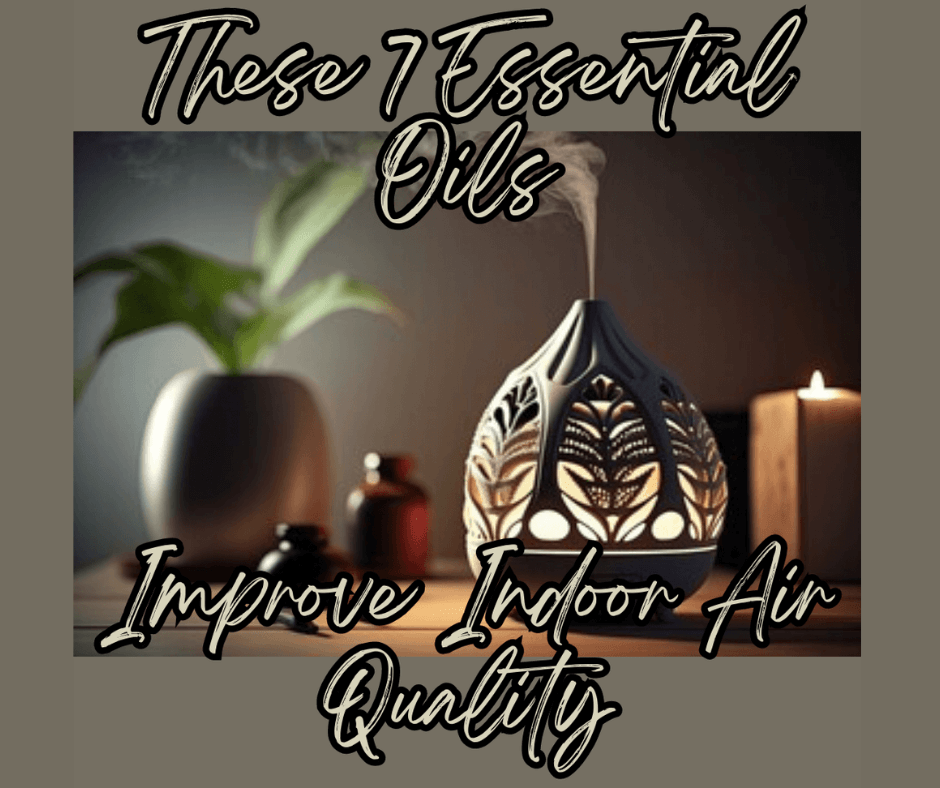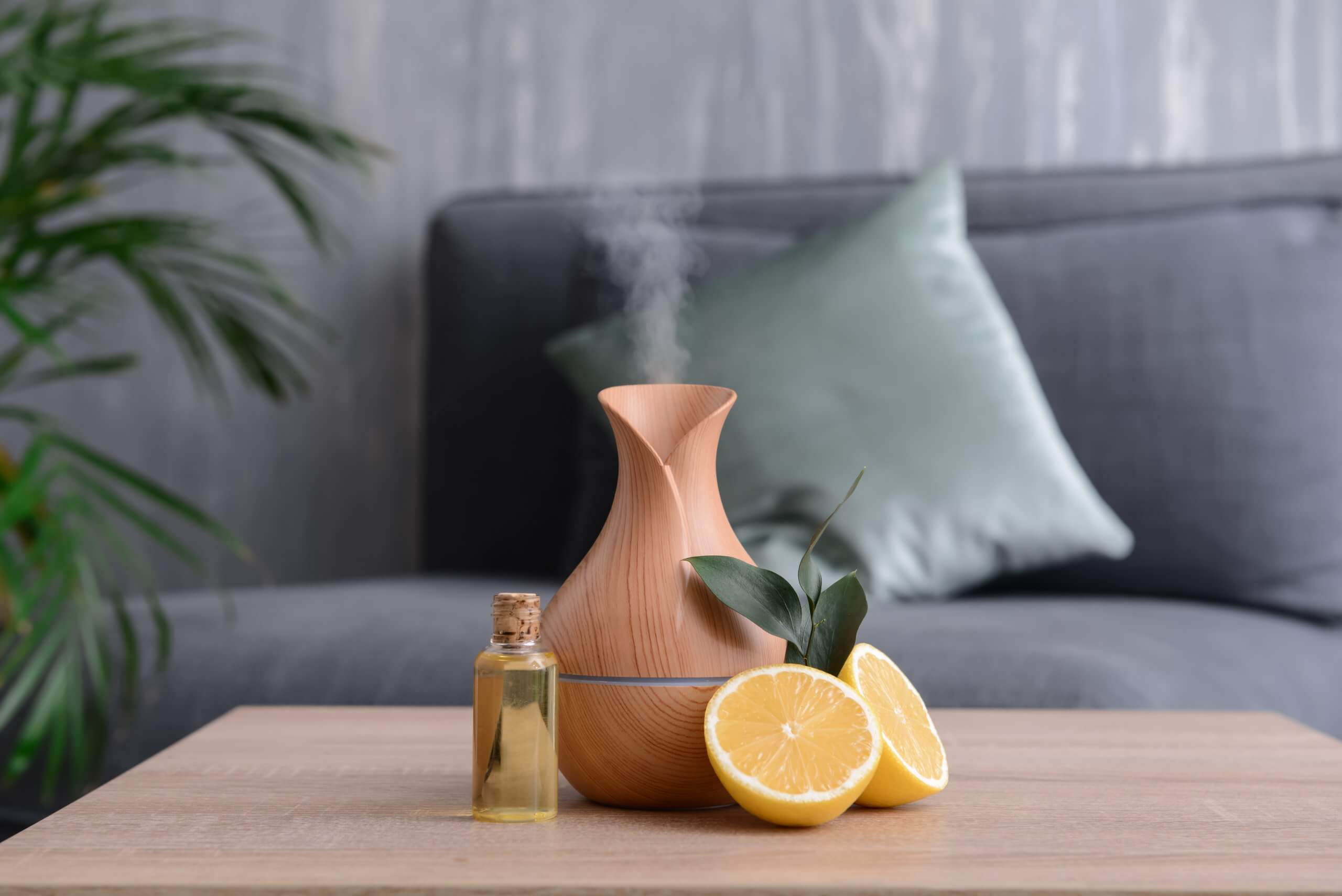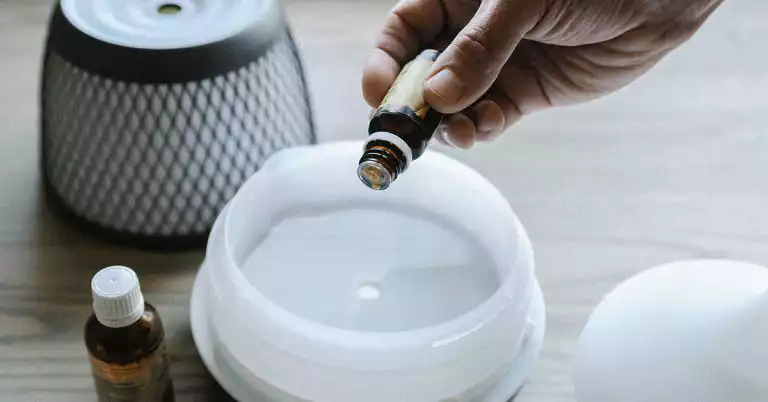Yes, you can use essential oils to improve indoor air quality. Essential oils have natural properties that can purify the air and remove toxins.
They can also make your home smell fresh and pleasant. Indoor air quality is crucial for health and well-being. Many people don’t realize how polluted indoor air can be. Dust, mold, and chemicals from household products can lower air quality.
Using essential oils is a natural way to combat these issues. They offer a safe and effective solution. In this post, we’ll explore how essential oils can improve your indoor environment. We’ll also discuss the best oils to use and how to use them. So, if you want a healthier home, keep reading!
Introduction To Essential Oils
Essential oils are powerful tools to improve indoor air quality. They are natural, aromatic compounds extracted from plants. These oils can create a pleasant atmosphere in your home. They may also offer health benefits. Let’s dive into what essential oils are and their history and uses.
What Are Essential Oils?
Essential oils are natural extracts from plants. They are obtained through distillation or cold pressing. These oils capture the plant’s scent and flavor. Each oil has unique properties and benefits. You can use them in various ways, such as aromatherapy, cleaning, and personal care.
History And Uses
Essential oils have been used for thousands of years. Ancient cultures like Egypt, China, and India valued them. They used oils for their healing properties and in religious ceremonies. Over time, people discovered many uses for essential oils. Today, they are popular in aromatherapy, skincare, and natural cleaning products.
Using essential oils can help freshen the air in your home. They can eliminate odors and create a calming environment. Some oils, like eucalyptus and tea tree, have antimicrobial properties. These can help reduce bacteria and mold in the air. Lavender and chamomile can promote relaxation and better sleep. Peppermint and lemon can uplift and energize. Each oil offers unique benefits, making them versatile for many needs.
To improve indoor air quality, you can diffuse essential oils. Use a diffuser to disperse the oil’s aroma throughout the room. Add a few drops of your favorite oil to water in the diffuser. Turn it on and let the aroma fill your space. You can also add oils to cleaning products or make your own. This can help remove toxins and leave a fresh scent.
Benefits Of Essential Oils For Air Quality
Essential oils can do wonders for improving indoor air quality. They not only add a pleasant aroma but also offer several health benefits. Using essential oils can help purify the air, making your home a healthier place to live.
Purifying Properties
Essential oils have strong purifying properties. They can help remove harmful bacteria and viruses from the air. Oils like tea tree, eucalyptus, and lemon are known for their antimicrobial qualities. These oils can break down airborne toxins and keep your home safe. Using a diffuser can help spread these purifying oils throughout your living space. This process makes the air cleaner and fresher to breathe.
Health Advantages
Improving air quality with essential oils also brings health benefits. These oils can reduce symptoms of allergies and asthma. Lavender and peppermint oils can ease respiratory issues and promote easier breathing. Inhaling essential oils can also boost your mood and reduce stress levels. Oils like chamomile and frankincense have calming effects that can improve mental well-being. Better air quality leads to better health, making essential oils a valuable addition to your home.
Popular Essential Oils For Air Purification
Essential oils have long been used for their aromatic and therapeutic benefits. They can also help to purify indoor air, making your home a healthier place. Some essential oils are particularly effective in cleaning the air and removing toxins. Below, we explore some popular essential oils for air purification.
Lavender
Lavender is widely known for its calming properties. This essential oil can also help improve indoor air quality. It has natural antibacterial and antiviral properties. Diffusing lavender oil can help reduce airborne pathogens. It also adds a pleasant, soothing aroma to your home.
Eucalyptus
Eucalyptus oil is another excellent choice for air purification. It is well known for its ability to clear the respiratory system. Eucalyptus oil has strong antimicrobial properties. Using it in a diffuser can help kill bacteria and viruses in the air. It also provides a refreshing and invigorating scent.
Tea Tree
Tea tree oil is a powerful purifying agent. It has antifungal, antibacterial, and antiviral properties. Diffusing tea tree oil can help eliminate mold spores and other harmful microbes. It can also help reduce allergens in the air. Its crisp, clean scent makes it a great addition to your air purification routine.
Lemon
Lemon essential oil is known for its fresh, uplifting aroma. It also has strong antibacterial and antiviral properties. Diffusing lemon oil can help kill airborne germs. It can also remove unpleasant odors, leaving your home smelling clean and fresh. Lemon oil can help boost your mood while purifying the air.

Credit: www.northridgeoak.com
Methods To Diffuse Essential Oils
Essential oils offer a natural way to improve indoor air quality. There are several methods to diffuse these oils, each with its unique benefits. By using essential oils, you can create a healthier and more pleasant environment in your home.
Using Diffusers
Diffusers are a popular choice for dispersing essential oils into the air. They come in various types, including ultrasonic, nebulizing, and heat diffusers. Ultrasonic diffusers use water and ultrasonic waves to disperse the oil. This method adds moisture to the air, making it ideal for dry environments.
Nebulizing diffusers do not use water or heat. They work by breaking the oil into tiny particles, releasing a concentrated aroma. This type is best for those who want a strong scent.
Heat diffusers use a small amount of heat to evaporate the oil. They are usually inexpensive and silent. However, heat can alter the oil’s properties, so choose this method with care.
Diy Spray Bottles
Creating your own spray bottles is another effective method. It’s simple and cost-effective. Start by mixing essential oils with water in a spray bottle. Typically, use around 10-20 drops of oil per ounce of water.
Shake the bottle well before each use. Spray the mixture into the air or onto soft surfaces like curtains and cushions. This method allows you to target specific areas and control the intensity of the scent.
DIY spray bottles are portable, making them convenient for travel. They also offer the flexibility to change the oil blend easily. Experiment with different oils to find the perfect mix for your home.
Blending Essential Oils
Blending essential oils can significantly enhance indoor air quality. Each essential oil has unique properties. When combined, they can create a more effective solution for purifying air. Blending oils requires a bit of knowledge but can be both fun and rewarding.
Combining Oils For Effectiveness
Combining oils enhances their individual benefits. For instance, lavender and tea tree oils work well together. Lavender provides a calming effect. Tea tree oil fights bacteria and viruses. This blend can help create a clean and relaxing environment.
Another effective combination is eucalyptus and lemon. Eucalyptus is known for its respiratory benefits. Lemon offers a fresh, uplifting scent and has antibacterial properties. Together, they can help improve breathing and eliminate germs.
Popular Blends
There are many popular essential oil blends. One popular blend is peppermint and lavender. Peppermint energizes and helps clear the airways. Lavender calms and soothes. This blend is perfect for a refreshing and relaxing atmosphere.
Another favorite is the citrus blend. This includes orange, lemon, and grapefruit oils. These oils are known for their uplifting and cleansing properties. The citrus blend can help eliminate odors and create a cheerful environment.
A blend of rosemary and lemon is also effective. Rosemary stimulates the mind and improves concentration. Lemon purifies the air and adds a fresh scent. This blend is great for workspaces or study areas.
Safety Tips For Using Essential Oils
Using essential oils to improve indoor air quality can be beneficial. But it is important to use them safely. Understanding proper usage can prevent potential risks. Here are some safety tips to keep in mind.
Dilution Guidelines
Always dilute essential oils before use. Direct application can be too strong. Mix a few drops with a carrier oil. Coconut or almond oil works well. This reduces the intensity and prevents skin irritation. For diffusers, follow the manufacturer’s guidelines. Usually, a few drops in water is enough.
Allergy Considerations
Be aware of possible allergies. Test a small amount on your skin first. Wait 24 hours to see if there is a reaction. If you notice redness or itching, avoid that oil. Some people may have respiratory sensitivities. Start with small amounts to see how your body reacts.
Diy Projects With Essential Oils
Using essential oils can greatly enhance indoor air quality. They offer a natural way to freshen up your living space. DIY projects with essential oils are fun and rewarding. You can create homemade air fresheners, cleaning solutions, and more. Let’s dive into some easy projects you can try at home.
Homemade Air Fresheners
Homemade air fresheners are simple to make. You can use essential oils to add a pleasant scent to any room. Mix water and a few drops of your favorite essential oil in a spray bottle. Lavender, lemon, and eucalyptus are popular choices. Shake the bottle well before each use. Spritz the mixture around your home. Enjoy the refreshing aroma.
You can also make reed diffusers. Fill a small jar with a carrier oil like almond or jojoba. Add 15-20 drops of essential oil. Place reed sticks in the jar. Flip the sticks every few days. This will keep the scent fresh and strong.
Cleaning Solutions
Essential oils can also be used in cleaning solutions. They add a natural, pleasant scent and have antibacterial properties. For an all-purpose cleaner, mix one cup of water, one cup of vinegar, and 20 drops of essential oil. Tea tree oil, lemon, and peppermint work well. Put the mixture in a spray bottle. Use it to clean countertops, sinks, and other surfaces.
For a fresh-smelling floor cleaner, add 10 drops of essential oil to a bucket of warm water. Mop your floors as usual. Your home will smell amazing and feel clean.
These DIY projects are easy to do. They make your home smell wonderful and improve air quality. Try them out and enjoy a fresher living space.

Credit: organicaromas.com
Maintaining Air Quality
Essential oils can help improve indoor air quality. They offer natural and pleasant scents. Regular use helps maintain a healthier home environment. Let’s explore how to use essential oils effectively.
Regular Use
Diffuse essential oils daily. Use a quality diffuser to spread oils into the air. Lavender, eucalyptus, and peppermint are good choices. These oils have purifying properties. They can also help reduce airborne bacteria.
Place diffusers in high traffic areas. Living rooms and bedrooms are ideal. Ensure the diffuser runs for at least 30 minutes. This helps to maintain a fresh and clean atmosphere.
Monitoring Air Quality
Keep track of your indoor air quality. Use an air quality monitor. These devices measure pollutants and humidity levels. Adjust your essential oil usage based on the readings. If air quality is poor, increase the frequency of diffusion.
Regularly check and clean your diffusers. Dirty diffusers can hinder the effectiveness of essential oils. Clean them with a mixture of water and vinegar. This ensures they function properly and maintain air purity.

Credit: iaq.works
Frequently Asked Questions
What Are The Best Essential Oils For Air Quality?
Lavender, eucalyptus, and tea tree oils are great for improving air quality. They have antibacterial and antiviral properties.
How Do Essential Oils Purify The Air?
Essential oils purify the air by releasing natural compounds. These compounds can neutralize bacteria, fungi, and viruses.
Can Essential Oils Help With Allergies?
Yes, essential oils like peppermint and eucalyptus can help relieve allergy symptoms. They reduce inflammation and clear nasal passages.
How Often Should I Diffuse Essential Oils?
Diffusing essential oils for 15-30 minutes, 2-3 times a day, is usually sufficient. Overuse can lead to headaches.
Conclusion
Improving indoor air quality with essential oils is simple and effective. Choose natural oils like lavender, eucalyptus, or tea tree. They purify the air and add a pleasant scent. Diffusers or sprays can distribute oils evenly. Remember to use oils safely and consult a professional if needed.
Enjoy a fresher and healthier home environment with these easy steps. Essential oils offer a natural way to breathe easier and feel better indoors. Try incorporating them into your daily routine for noticeable benefits. Your home deserves fresh, clean air.
Rakib Sarwar is a Registered Pharmacist and a reputed health and wellness blogger. He has a great interest in Air purifiers.
